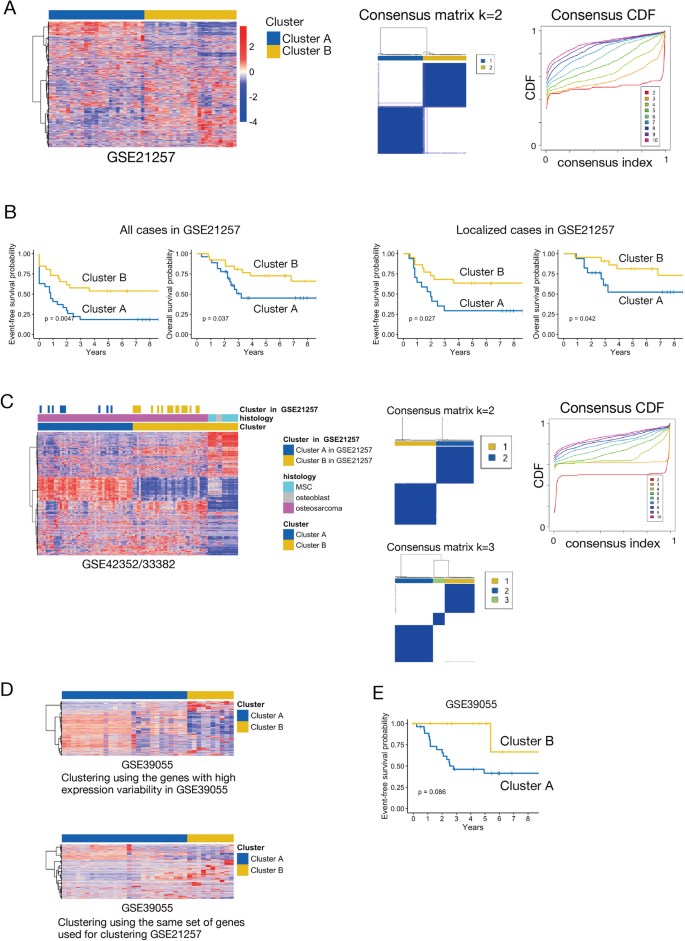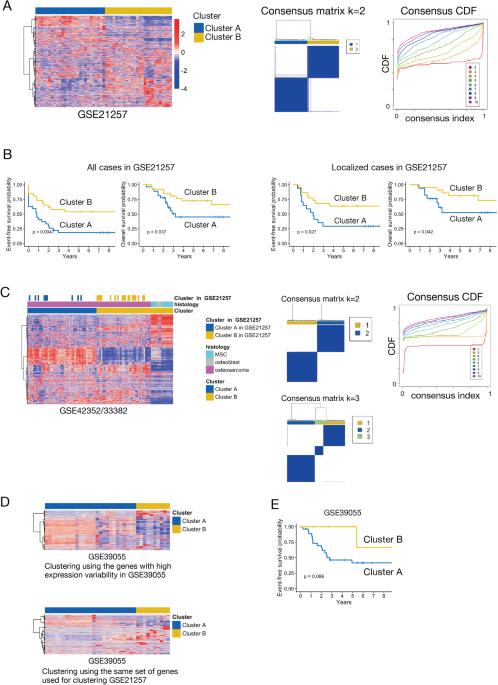Inhibition of the galactosyltransferase C1GALT1 reduces osteosarcoma cell proliferation by interfering with ERK signaling and cell cycle progression
IF 4.8
3区 医学
Q1 BIOTECHNOLOGY & APPLIED MICROBIOLOGY
引用次数: 0
Abstract
Novel therapeutic strategies are urgently required for osteosarcoma, given the early age at onset and persistently high mortality rate. Modern transcriptomics techniques can identify differentially expressed genes (DEGs) that may serve as biomarkers and therapeutic targets, so we screened for DEGs in osteosarcoma. We found that osteosarcoma cases could be divided into fair and poor survival groups based on gene expression profiles. Among the genes upregulated in the poor survival group, siRNA-mediated knockdown of the glycosylation-related gene C1GALT1 suppressed osteosarcoma cell proliferation in culture. Gene expression, phosphorylation, and glycome array analyses also demonstrated that C1GALT1 is required to maintain ERK signaling and cell cycle progression. Moreover, the C1GALT1 inhibitor itraconazole suppressed osteosarcoma cell proliferation in culture, while doxycycline-induced shRNA-mediated knockdown reduced xenograft osteosarcoma growth in mice. Elevated C1GALT1 expression is a potential early predictor of poor prognosis, while pharmacological inhibition may be a feasible treatment strategy for osteosarcoma.


抑制半乳糖基转移酶 C1GALT1 可通过干扰 ERK 信号传导和细胞周期进展减少骨肉瘤细胞增殖
骨肉瘤发病年龄早,死亡率居高不下,因此迫切需要新的治疗策略。现代转录组学技术可识别差异表达基因(DEGs),这些基因可作为生物标记物和治疗靶点,因此我们筛选了骨肉瘤中的差异表达基因。我们发现,根据基因表达谱,骨肉瘤病例可分为生存率一般和生存率较差两组。在生存率较差组的上调基因中,siRNA 介导的糖基化相关基因 C1GALT1 的敲除抑制了骨肉瘤细胞在培养中的增殖。基因表达、磷酸化和糖基化阵列分析也表明,C1GALT1是维持ERK信号转导和细胞周期进展所必需的。此外,C1GALT1抑制剂伊曲康唑抑制了培养物中骨肉瘤细胞的增殖,而强力霉素诱导的shRNA介导的基因敲除减少了小鼠异种移植骨肉瘤的生长。C1GALT1表达升高是预后不良的潜在早期预测指标,而药物抑制可能是治疗骨肉瘤的可行策略。
本文章由计算机程序翻译,如有差异,请以英文原文为准。
求助全文
约1分钟内获得全文
求助全文
来源期刊

Cancer gene therapy
医学-生物工程与应用微生物
CiteScore
10.20
自引率
0.00%
发文量
150
审稿时长
4-8 weeks
期刊介绍:
Cancer Gene Therapy is the essential gene and cellular therapy resource for cancer researchers and clinicians, keeping readers up to date with the latest developments in gene and cellular therapies for cancer. The journal publishes original laboratory and clinical research papers, case reports and review articles. Publication topics include RNAi approaches, drug resistance, hematopoietic progenitor cell gene transfer, cancer stem cells, cellular therapies, homologous recombination, ribozyme technology, antisense technology, tumor immunotherapy and tumor suppressors, translational research, cancer therapy, gene delivery systems (viral and non-viral), anti-gene therapy (antisense, siRNA & ribozymes), apoptosis; mechanisms and therapies, vaccine development, immunology and immunotherapy, DNA synthesis and repair.
Cancer Gene Therapy publishes the results of laboratory investigations, preclinical studies, and clinical trials in the field of gene transfer/gene therapy and cellular therapies as applied to cancer research. Types of articles published include original research articles; case reports; brief communications; review articles in the main fields of drug resistance/sensitivity, gene therapy, cellular therapy, tumor suppressor and anti-oncogene therapy, cytokine/tumor immunotherapy, etc.; industry perspectives; and letters to the editor.
 求助内容:
求助内容: 应助结果提醒方式:
应助结果提醒方式:


